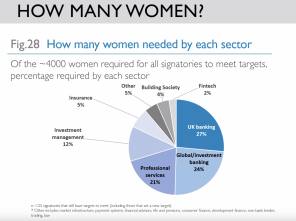

Social mobility is one of the most difficult aspects of diversity, equity and inclusion but Britain needs to address it, the former chief economist at the Bank of England has claimed.
Speaking in conversation with David Aujla, co-lead of the Diversity Project's workstreams, Andy Haldane, who is now chief executive of the The Royal Society for the Encouragement of Arts, Manufactures and Commerce, warned that Britain might be standing still or even going backwards in terms of social mobility.
He said: "Social mobility has perhaps until lately been one of the least focused on aspects of diversity, equity and inclusion.
"We know at a national level, based on any of the metrics on social mobility, we are at best as a country been standing still and might even have been going backwards.
"In fact, we may not have moved forward much for centuries, let alone decades."
But he said certain sectors are worse when it comes to improving social mobility, and financial services is one of the biggest culprits when it comes to progress on this front.
He said: "What is true of the country as a whole is particularly true of sectors and professions such as financial services.
"These professions often stand out for the wrong reasons on this front. I've worked in financial services most of my life and it really does stand out."
He said this was why, when he was asked to do something more "purposeful" in the social mobility space, with a focus on the financial services sector, it was "an opportunity I could not pass up".
Haldane commented: "We need to shine a light on what is self-evident and a longstanding problem that was not solving itself. It needed a nudge or even a shove to get this started."
He provided some tips for companies looking to improve social mobility among their workforce and communities.
Focus on recruitment - not just replacing a person but considering the fitness for the team
Mapping your organisation better - Once you have gotten people in the door "which is the less difficult part", you need to make them feel at home and genuinely part of the team.
You have to focus therefore on recruitment and retention to "really turn the dial" on social mobility.
BoE - then and now
Haldane reminisced on his work at the Bank of England.
He said: "The Bank is unrecognisable now compared with how it was then when I started in the 1980s for its diversity and inclusion."
In the late 1980s it was an environment predominantly filled with men who graduated from Oxford or Cambridge. But over time, he said "thousands of people have made small changes" to enable the bank to be a diverse workplace.
Discussing the City of London Corporation’s Taskforce on Socioeconomic Diversity, he states categorically that it is important for leaders of organisations to see the financial implications and business benefits of DE&I.
He said: "What turns the heads of leaders of organisations differs, right? For some, the equity and social justice case and social mobility case is strong enough for them to want to take action. They view their businesses as essentially social constructs and for some, the moral case is enough.
"But this is not everyone. During our Taskforce deliberations we found that out. You can't just shift the playing field - you have to tilt people's perceptions of the playing field.
"This meant for other leaders, the case for improving social mobility became stronger when you can bring evidence that they would be leaving money on the table by not doing a better job of having an organisation that is properly diverse along socio-economic dimensions, as well as other aspects of DE&I."
Aujla said: "We can all walk around organisations and see see how gender diverse they are but it is hard to see economic diversity - so leaders can easily pretend everything is fine without having the data to properly evaluate it."
FCA work
The Financial Conduct Authority has been focusing on DE&I as an integral part of financial services culture.
In 2021, it published discussion paper 21/2: Diversity and inclusion in the financial sector - working together to drive change. This 57-page paper found that while some companies had made great strides forward, there was still too little action around certain aspects of DE&I.
The paper stated: "There is also limited progress on social mobility. A deep dive study of eight financial firms (including regulators) found that 89 per cent of senior roles are held by people from higher socio‑economic backgrounds."
The FCA highlights the Social Mobility Employer Index, which is a benchmarking initiative that ranks Britain’s employers on the actions they are taking to ensure they are open to accessing and progressing talent from all backgrounds and it showcases progress towards improving social mobility.
In 2019, the FCA itself was ranked 23 on the index.
simoney.kyriakou@ft.com



